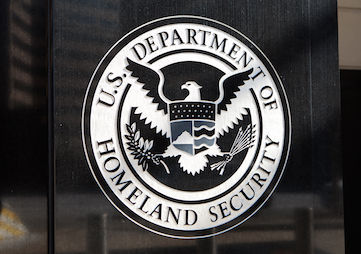2015: The Year in Government Secrecy
Here's a rundown on how this past year shaped up on the issue of government accountability (hint: not well) from someone who knows quite a bit on the subject: reporter Jason Leopold, who's familiarized himself thoroughly on the secrecy tip as well as on the Freedom of Information Act and its uses. Mark Van Scyoc / Shutterstock
Mark Van Scyoc / Shutterstock
Mark Van Scyoc / Shutterstock
Here’s a rundown on how this past year shaped up on the issue of government accountability (hint: not well) from someone who knows quite a bit on the subject: reporter Jason Leopold, who’s familiarized himself thoroughly on the secrecy tip as well as on the Freedom of Information Act and its uses.
Leopold takes stock on Vice News:
On issues as wide-ranging as Guantanamo and net neutrality, to the federal government’s response to the Ebola outbreak, to the costs of operating black-site CIA prisons across Europe, US government agencies again refused to err on the side of disclosure in 2015 — as they were instructed to by then–Attorney General Eric Holder back in 2009 — and instead chose to conceal information. In doing so, the agencies cited threats to national security, privacy, the so-called “deliberative process,” and other exemptions under the Freedom of Information Act (FOIA).
And despite it all, the Obama administration continued to proclaim that it is “the most transparent administration in history.”
There were victories in the fight for transparency this year, however. It was a VICE News FOIA lawsuit that forced the State Department to publicly release Hillary Clinton’s emails, arguably the most high-profile release of documents in 2015.
When we sued the State Department on January 25 for Clinton’s emails, the scandal over her exclusive use of a private email account while she was Secretary of State had not yet unfolded. Our decision to litigate was based instead on the fact that she was set to become the Democratic presidential frontrunner in 2016, and we wanted to gain insight into the way she performed as the nation’s top diplomat.
The monthly disclosures have contained, for instance, revelatory details about Clinton’s stance on the controversial 2009 troop surge in Afghanistan and her work in helping to secure the release of high-profile Guantanamo detainee Omar Khadr, have also helped to shed much-needed light on the State Department’s disastrous FOIA operations that caused the years-long delay of documents.
–Posted by Kasia Anderson
Your support matters…Independent journalism is under threat and overshadowed by heavily funded mainstream media.
You can help level the playing field. Become a member.
Your tax-deductible contribution keeps us digging beneath the headlines to give you thought-provoking, investigative reporting and analysis that unearths what's really happening- without compromise.
Give today to support our courageous, independent journalists.






You need to be a supporter to comment.
There are currently no responses to this article.
Be the first to respond.